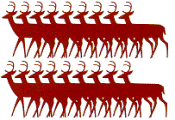United States Department of Agriculture, National Wildlife Research Center: Symposia

Contraception in Wildlife Management
Date of this Version
October 1993
Abstract
Contraception has become critical in managing zoo populations, both to limit production of surplus animals and to promote genetic health. One role of the Contraception Advisory Group, formed in 1989, is to coordinate research to develop new contraceptive methods. Because melengestrol acetate (MGA) implants, which have been used by zoos for almost 20 years, recently have been associated with uterine pathology in felids, several new contraceptive techniques are being evaluated. These include other steroid hormone formulations, such as the birth control pill Depo-Provers®, the Norplant® implant, and MGA added to feed; bisdiamine, an oral male contraceptive; zona pellucida (ZP) vaccine; and vas plugs. Bisdiamine reversibly blocked spermatogenesis while sparing testosterone in its first test in gray wolves. ZP vaccine has been effective in preventing births in a variety of species of hoofstock, primates, and carnivores; however, long-term deleterious effects on the ovaries have been found in some controlled trials. Injectable vas plugs that conform to the shape of the vas make it possible to successfully treat a wide variety of species; reversal trials are currently underway. As research efforts continue, we hope to expand our collaborations with scientists working on contraceptive development for humans. companion animals and wildlife. to better make use of the limited resources available for these investigations.


Comments
Published in Contraception in wildlife management. APHIS Technical Bulletin No. 1853. USDA, Animal and Plant Health Inspection Service, Washington, D.C., USA.